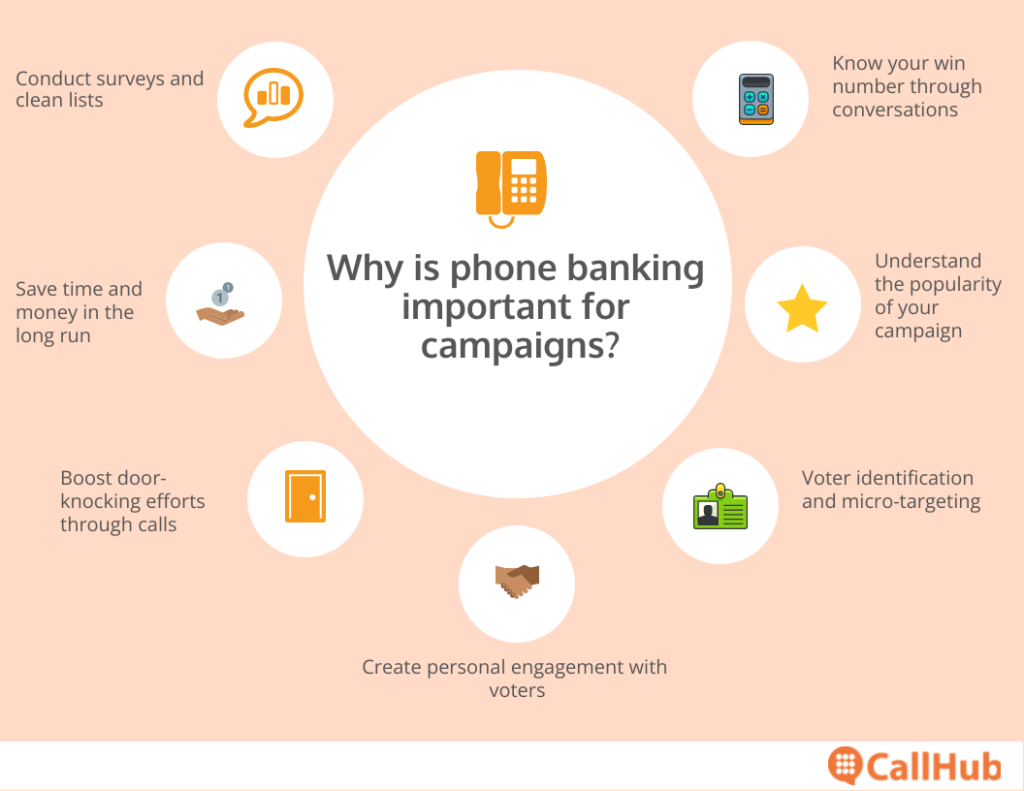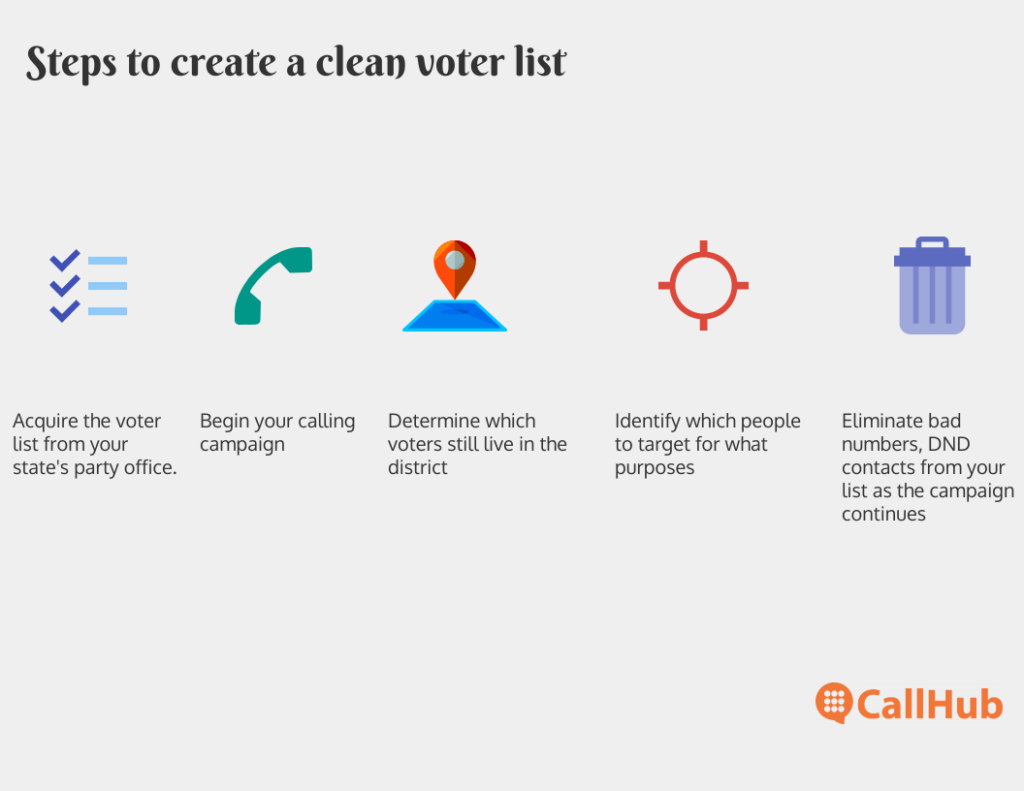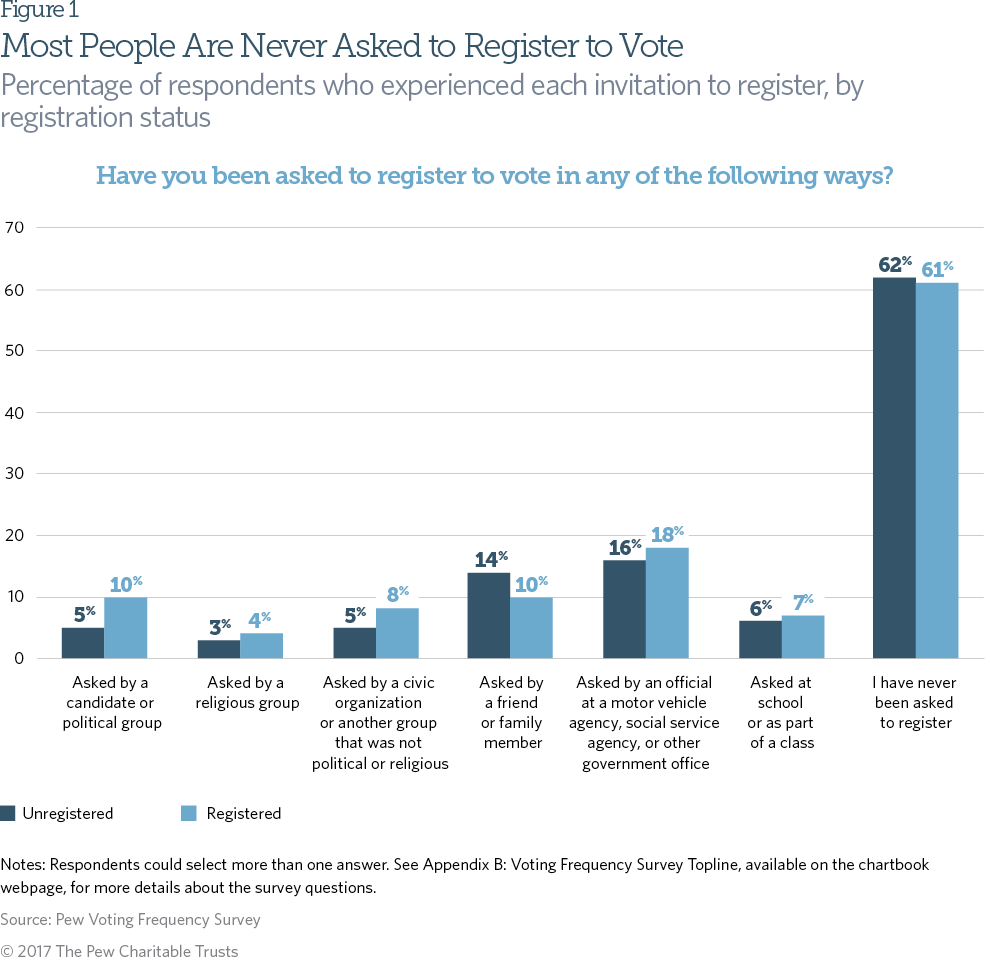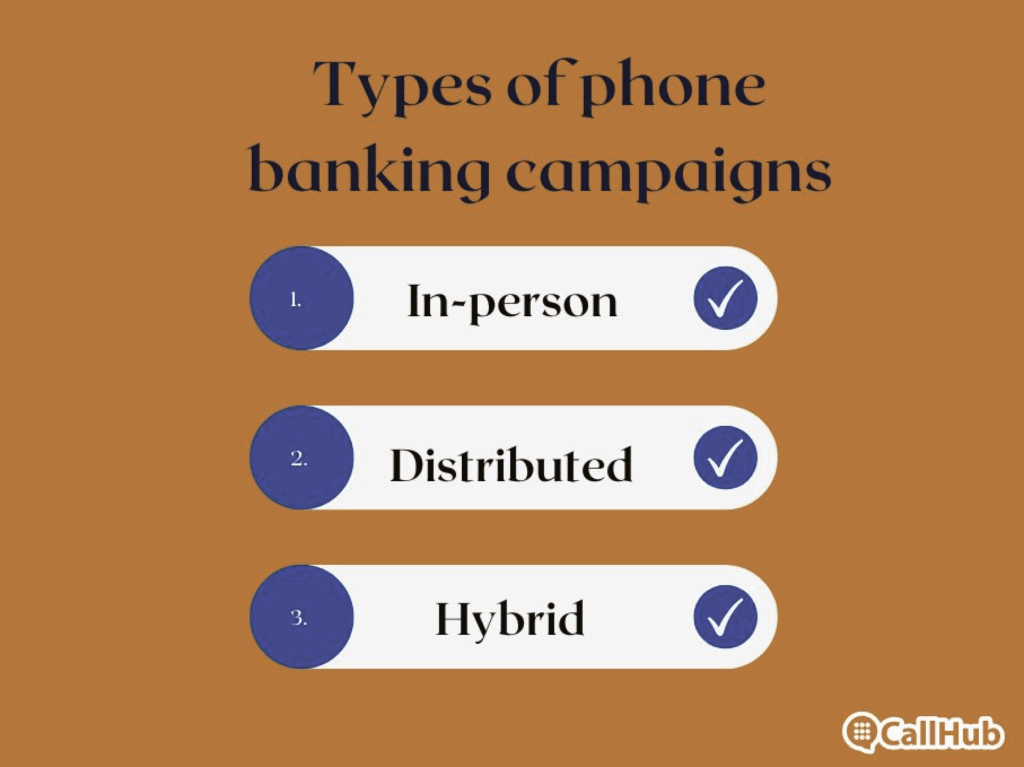Table of Contents
Political phone banking is one of the most effective campaign strategies, consistently boosting voter turnout by 3–4%. By having volunteers or software call voters directly, campaigns can engage supporters, raise funds, and clean voter lists at scale, all while maintaining a personal connection.
Studies show that live conversations are one of the few proven methods to persuade undecided voters and remind supporters to cast their ballots.
In this article, we break down why political phone banking works, the types of campaigns that benefit most, and how effective tools like CallHub make it faster and more efficient.
What is phone banking?
For the uninitiated, a call outreach campaign could be a group of volunteers manually dialing several contacts or a sophisticated phone banking software-led drive. In the latter, volunteers are introduced to an autodialer software to make calls to an extensive list of voters at incredible speeds and efficiency.
Volunteers from within the campaign or telemarketing teams hired for phone banking efforts typically make calls to eligible and relevant voters (voters who already lean towards a party or candidate) in a constituency for any reasons we have listed below.

Using phone banking can improve campaign outreach in more ways than one by helping campaigns connect directly with voters, build familiarity, and share their message at scale.
Read also: First time phone banking? Here’s how to crush it.
Is phone banking effective?
One has to wonder – do people respond to calls by strangers and decide to vote based on that? Would people genuinely donate money because a volunteer on the other end of the phone asks them to?
Let’s explore what different studies have to share.
1. Political phone banking is one of the best canvassing methods
Traditionally, door-to-door canvassing is a popular method for campaigns to reach out to voters and raise awareness about their campaigns. However, right after door-to-door canvassing, political phone banking is the most sought-after canvassing technique.
Here’s how phone banking helps canvassing efforts:
- When you consider costs, some estimate the cost per vote through door-to-door canvassing at $33, while phone banking brings in a vote at $36. While it seems costlier, phone banking is a worthwhile investment when you consider logistical and other costs associated with door canvassing.
- It reaches a large total number of people in a short period. Studies show that a door canvasser can knock up to 20 doors an hour, but using an autodialer can help volunteers reach 110 people per hour.
- If you have less number of volunteers, phone banking is a more effective way to reach out to a large group of voters, while maintaining the personal touch that often gets lost in mass messaging strategies.
- Phone banking efforts led to a 3.8% increase in voter turnout.
Read Also: Your A-Z Guide on Phone Canvassing Tools, Scripts & More
2. Political Phone Banking Helps Clean Voter Lists Fast!
Political campaigns acquire voter lists to begin their campaigning process. However, they also need to know which voters to contact for effective campaigning, fundraising, and GOTV drives. Voters who lean towards their party and can donate or support them are the ideal target audiences.
However, identifying these voters is not easy since most lists acquired by campaigns are not clean – that is, they may have numbers that are on the DND list, contacts that might have moved cities, etc. – basically, contacts that may not serve your campaign.
Phone banking campaigns help you reach many contacts in a short period to clean your lists swiftly.

Building and cleaning lists is an extensive activity that every campaign undertakes as the campaign progresses. Using phone banking and effectively utilizing your volunteer network will help save time and effort.
Read Also: Marie Kondo-ing Your Contact List: How to Clean an Existing Contact List
3. Call time is political phone banking in action.
Every successful campaign needs funds to run its election campaign. Political fundraising is made smoother through call time (also known as ‘dialing for dollars’). Call time is when candidates spend directly speaking with potential donors to raise money for their campaign.
Call time is the number one way in which candidates raise money. It leverages personal connections and one-to-one conversations to appeal to donors.
4. Volunteer-led fundraising
15–25% of donors respond to telefundraising by campaigns. That’s an encouraging statistic to give political phone banking a try.
Read Also: A Quick Guide to Kickstart Telephone Fundraising
Through phone banking for fundraising, you can:
- Identify potential donors.
- Run calling campaigns to reach them.
- Tag relevant and prospective donors for future reference.
- Follow up through texts and share donation links.
Phone fundraising might also seem appealing when you realize that response rates to calls are 250x more than emails.
| Did you know? Democrats Abroad increased their fundraising outreach by 300 times when they moved to CallHub’s phone banking software. Read their story here |
5. Phone banking for voter registration
Voter registration is a hassle in the United States. Here’s why:
- Less than 20% of voters have been offered the opportunity to register to vote at a motor vehicle agency or other government agency for elections.
- Many voters report not knowing how to register to vote.
- Politicians are making it increasingly difficult to vote, with about 400 anti-voter bills passed in 48 states recently. Voter suppression is a real problem.

Phone banking serves as a great way to ensure you can direct your supporters to register to vote, explain the steps for registration, and follow up to ensure that they have indeed registered. Your win depends solely on the number of voters who actually turn up to vote. Therefore, voter registration is an integral part of campaign activities.
Read Also: How to determine your win number & create a perfect voter outreach plan
Types of phone banking campaigns

Since we’ve determined how effective phone banking can be for different campaign activities, let’s explore the different types of call outreach campaigns.
1. In-person phone banking
In-person phone banking is where volunteers all sit together and make calls. There are numerous benefits to conducting an in-person phone banking campaign. It becomes easier for campaigns to train and support their phone banking volunteers. Also, working together helps overcome call reluctance and encourages volunteers.
| Pro-tip: To encourage volunteers, conduct phone banking parties. Make it fun by introducing games and keeping a leader scoreboard. Reward volunteers who perform the best. CallHub’s analytics dashboard allows you to create a leader scoreboard to gamify your phone banking efforts easily. |
2. Distributed phone banks
Distributed phone banking can happen from anywhere! Volunteers can choose to stay at home or make calls sitting at their favorite cafe. Especially during the COVID-19 pandemic, distributed phone banks seemed like a self-evident choice for political campaigning.
Distributed phone banks are also inclusive since they allow people from all walks of life to contribute to the political process meaningfully. Anyone – young, old, or differently-abled can contribute from a comfortable space.
With good software such as CallHub, distributed outreach campaigns can also easily comply with the law. Here’s why you need to consider it:
- When volunteers call from different states, they may be in a different time zone than the people they call. With strict laws around permitted call timings, you need to ensure your volunteers comply with local state timings. Timezone calling can allow callers from anywhere to stay compliant with the legally allowed call timings of a state without having to constantly calculate the permitted times.
- When volunteers from different areas call someone from the constituency you are targeting, the people may not pick up the call. Voters are more likely to pick up a call from an unknown number if it reflects a local area code. Dynamic caller ID features in your software can reflect a local code when callers call voters in a different district from their own.
Read also: Is robodialer still legal and relevant for political phone banking?
3. Hybrid political phone banking
Hybrid outreach campaigns are for those who do not want to miss out on the best of both worlds – in-person and distributed calling.
A hybrid campaign outreach can accommodate volunteers who want to participate from home and those who want to turn up at your office for in-person calls. This way, whenever volunteers can, they show up and can still foster a sense of community and purpose together. Those who can’t, well, they’re still helping in the best way they can.
Through CallHub, you can easily set up a hybrid outreach campaign. Your outreach manager can assign and distribute call lists to volunteers that they can follow without overlapping with other volunteers’ lists.
The way forward with political phone banking
Phone banking has been effective in helping campaigns reach out to a large number of people in a short amount of time. The right calling software to aid your phone banking efforts is an excellent asset in your outreach efforts. To summarize, the right calling software can:
- Help you maintain clean lists.
- Save notes and records from calls.
- Help with live call monitoring for training.
- Enable follow-up through other communication channels, such as texts.
- Help you stay compliant with laws.
CallHub’s calling software is perfect and ticks all the boxes above! Try CallHub for free for 14 days today to know for yourself.
Featured Image Source: Yan Krukov
Frequently asked questions on phone banking
What is political phone banking, and how does it work?
Political phone banking is when campaigns use volunteers or software to call voters, aiming to drive turnout, fundraise, and clean voter lists. This can include manual calling or high-speed autodialer technology, making mass outreach efficient and personal.
Is political phone banking an effective campaign strategy?
Yes, political phone banking increases voter turnout by 3–4%, helps fundraise, and can reach far more voters per hour than canvassing, making it a proven outreach method.
CallHub’s advanced dialers and reporting features make it easy to track results and optimize calling campaigns for even better impact.
How does phone banking help in cleaning voter lists?
Phone banking lets campaigns quickly confirm voter contact info and status, removing invalid numbers so outreach and GOTV efforts focus only on engaged, eligible voters. Tools like CallHub make this process seamless by automatically flagging bad numbers and syncing updates back to your CRM, saving teams hours of manual data cleanup.
What are the different types of phone banking campaigns?
The three main types of phone banking campaigns are:
Hybrid (a mix of in-person and remote calling), combining flexibility with team-building.
In-person (volunteers work together at a central location)
Distributed (volunteers call from home or any location)
What are the key benefits of using call center software for political phone banking?
Call center software streamlines phone banking by maintaining clean contact lists, capturing call notes, providing live call monitoring for training, enabling follow-up via text or links, and ensuring legal compliance. These features maximize campaign efficiency, outreach scale, and impact.




